Your cart is currently empty!
Category: Updates from the Field
-
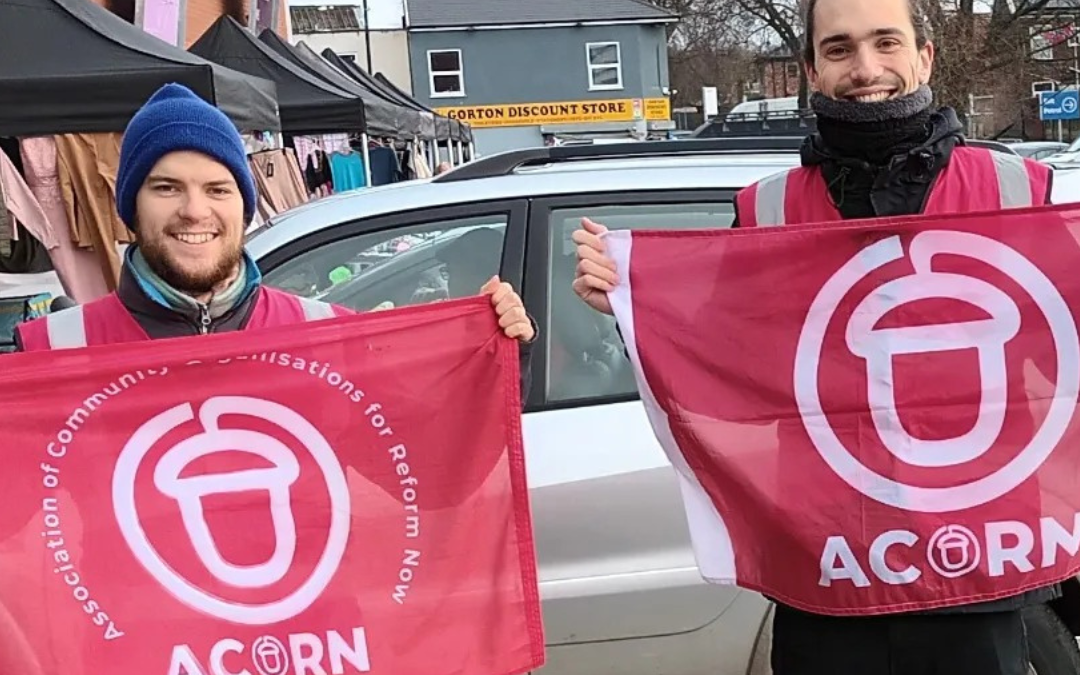
ACORN Manchester Celebrates ‘Boot the Bailiffs’ Victory and Spreads the Word on Organizing Power
ACORN Manchester capitalized on their major “Boot the Bailiffs” win by using it to spread the word about the power of organizing with successful organizing campaign. ACORN Leeds continued their fight against Gloriavd HealthCare on behalf of immigrant workers.
-
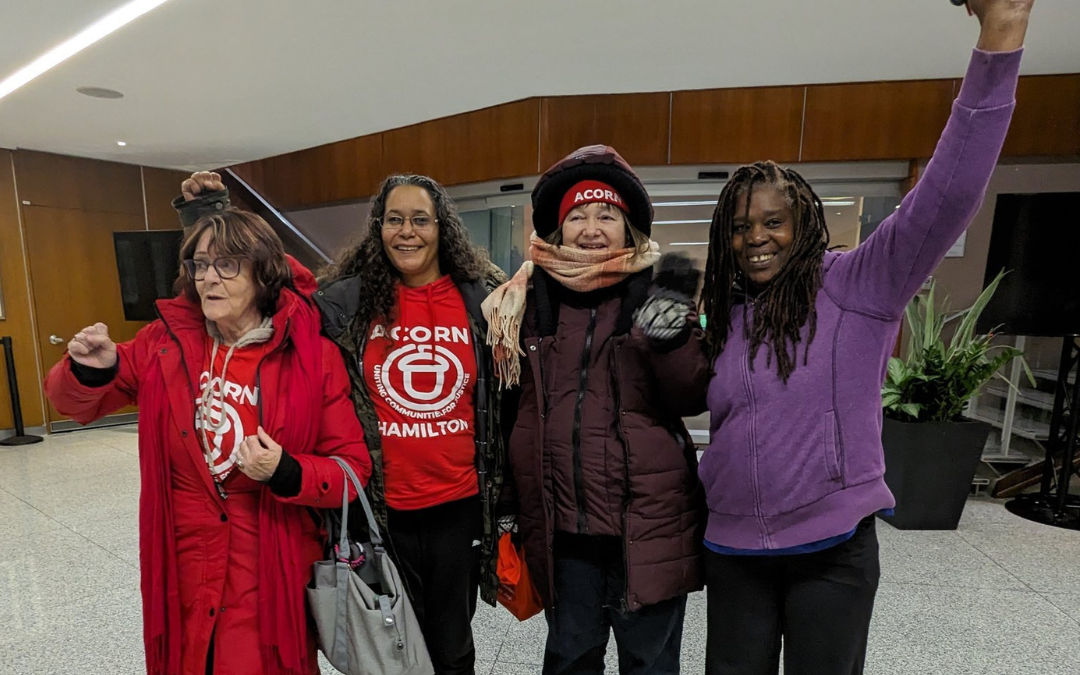
Major Victory for ACORN Hamilton: First Ontario City to Restrict Renovictions
After five years of tireless organizing, ACORN Hamilton had a MAJOR win in January, when the city became the first in Ontario to pass a bylaw to restrict renoviction! ACORN Canada is keeping this incredible momentum going to pass similar legislation in Waterloo and London!
-

Agro-Industry Dwellers Unite:
When the French government suspended the Ecophyto plan to reduce the use of harmful chemicals in farming, The Alliance Citoyenne and the Riverains Ensemble union co-wrote a tribune signed by eight associations representing hundreds of agro-industry dwellers who are standing up to protect their health and the earth!
-

2024 is here and we are kicking it off with a fund raising campaign
2024 is shaping up to be ACORN International’s biggest year ever, but we need your support to make it happen. Chip in 5 or 10 bucks, pounds, or rupees to keep us fighting and winning.
Visit our Instagram: Acorn International Instagram
or Donate Here and watch our recap video
-
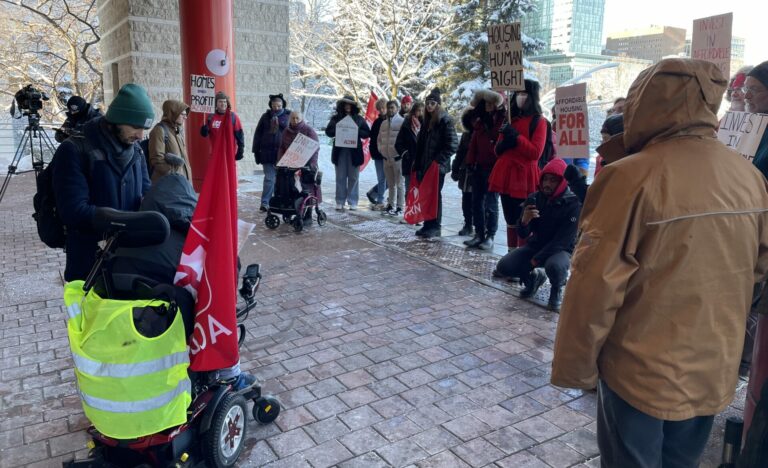
ACORN members rally outside City Hall for $40 million for Affordable Housing amid 2024 City Budget Vote!!
Today, December 6th, over 30 ACORN members braved the frigid cold and rallied outside city hall right before the 2024 Ottawa City Budget vote to demand a significant allocation of $40 million for affordable housing! Co-Chair of the Central Ottawa ACORN Chapter Pascal Kakule was a dynamic force at the forefront of this rally and advocated for the crucial need for city councillors to act now and increase the affordable housing fund in the city budget to finally create some meaningful impact on the lives of Ottawa tenants. Read more here!
-
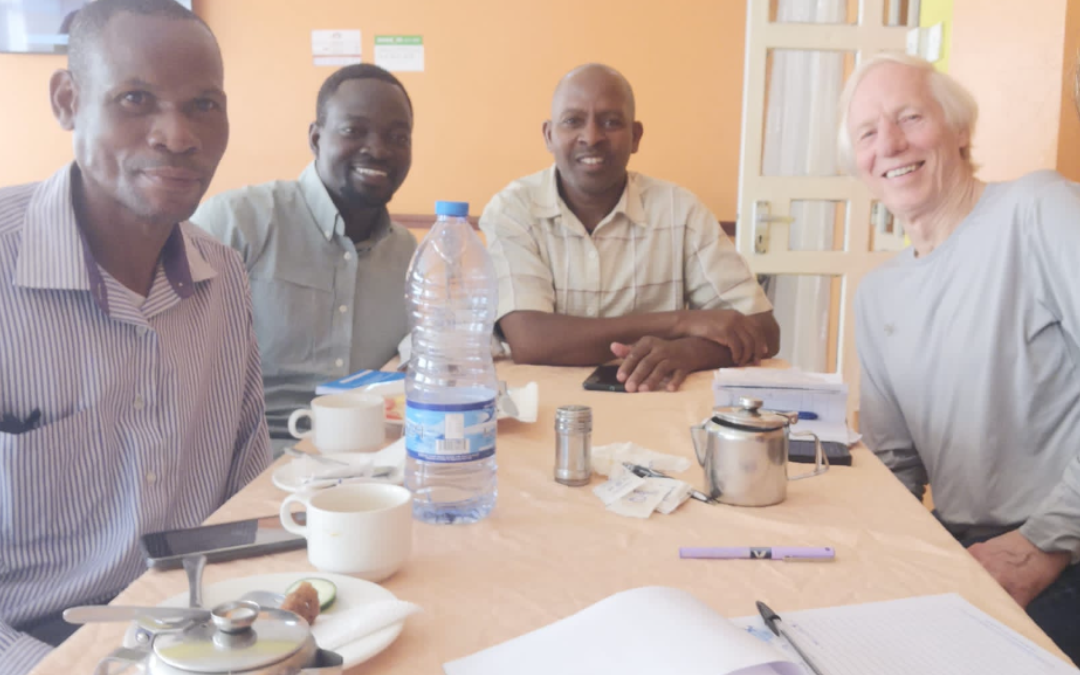
Acorn Kenya Training Session
ACORN Kenya hosted a successful training session on the basics of community organizing for unions and NGOs at the Kariobangi Social Justice Center in Nairobi, and are planning the 2024 African Organizers Forum, slated for early next year. Members are also generating a report to ask the governor to include all the community schools in the urban settlement of Korogocho in their school food program, which would be a major win!
-

ACORN India has been hard at work with many events and campaigns to empower women and children
The Empowering Women in WPC Conference held at the YMCA in Mumbai, which addressed the various concerns of women in leadership, and ACORN India and SOSVA held a women waste picker collectives training meeting. Important campaigns in Dharavi continued for youth, including hygiene programs for menstruating young people, art education, and healthy nutrition programs.
-
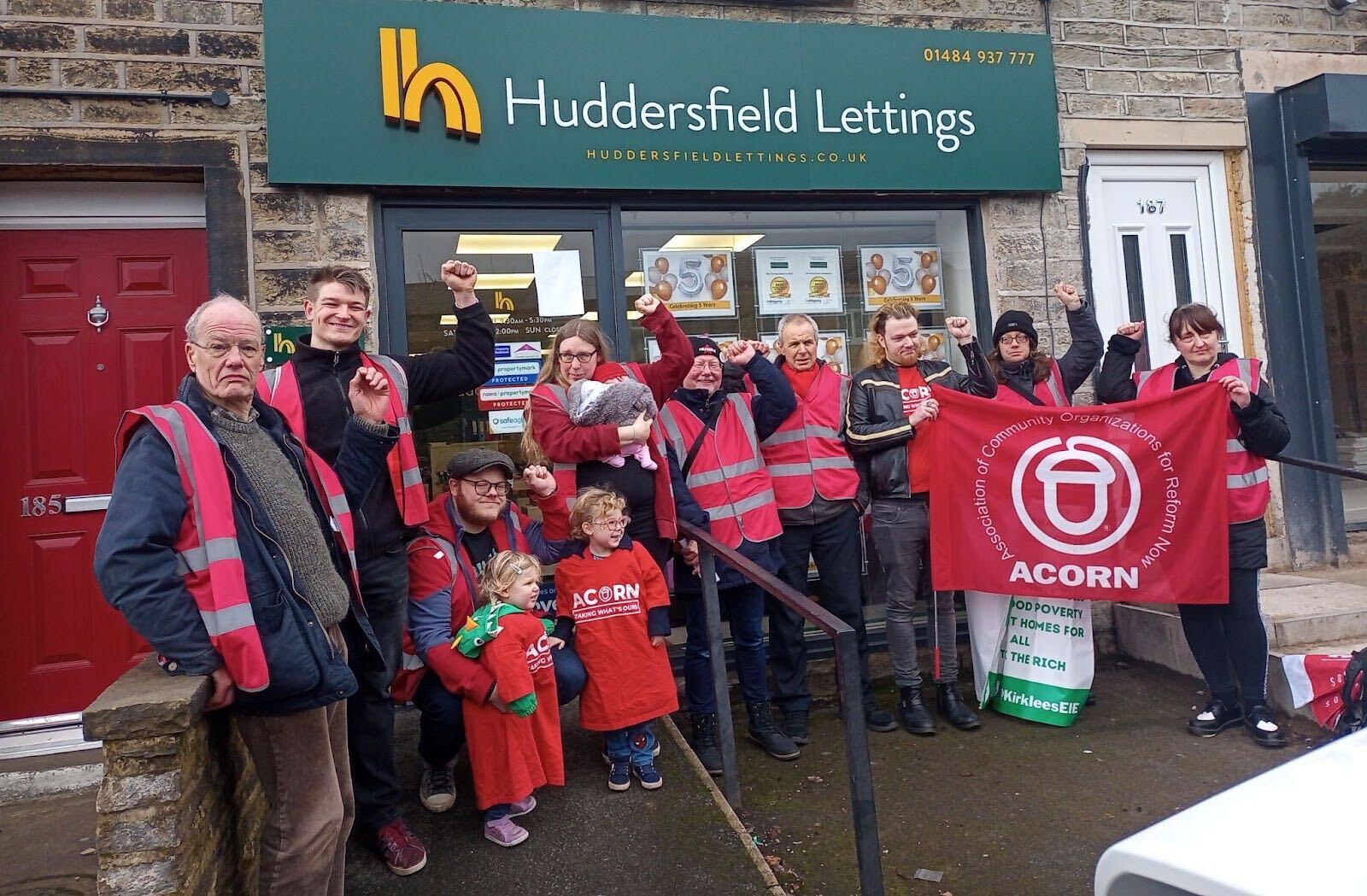
Huddersfield family of five kept safe from eviction!
ACORN’s Huddersfield group is set to officially launch following a successful fight to keep a family in their home. This summer, ACORN members in Huddersfield prevented the eviction of a newborn baby and her family from eviction! Alex and Jenny were expecting their third daughter, when they were served a Section 21 ‘No-Fault Eviction’ the same week their baby was due!Prior to that, they had made numerous complaints to their estate agents about faulty electrics, leaks, lack of heating and widespread damp, which lead their eldest to become hospitalised with asthma for a week!
Their repairs were not resolved, and shortly after a Kirklees Council report was submitted, Alex and Jenny were informed the landlord would be selling the house.A dozen Huddersfield residents, of all ages, marched down to Alex and Jenny’s agents to demand an extension to their tenancy, while 5-day old baby was settling in, and the most urgent of repairs seen to!In the 3 months of sustained action, the landlord sorted the most critical repairs, agreed to let them stay, and even attempted to increase their rent by 15% – which was quickly prevented! Eventually, Alex and Jenny managed to find a new home for their family, and left with their full deposit returned, totalling £714 won back.
To learn how we can fight for a better deal for ordinary people in Huddersfield, come along to our official launch event on Saturday, 14th October. RSVP here.
-
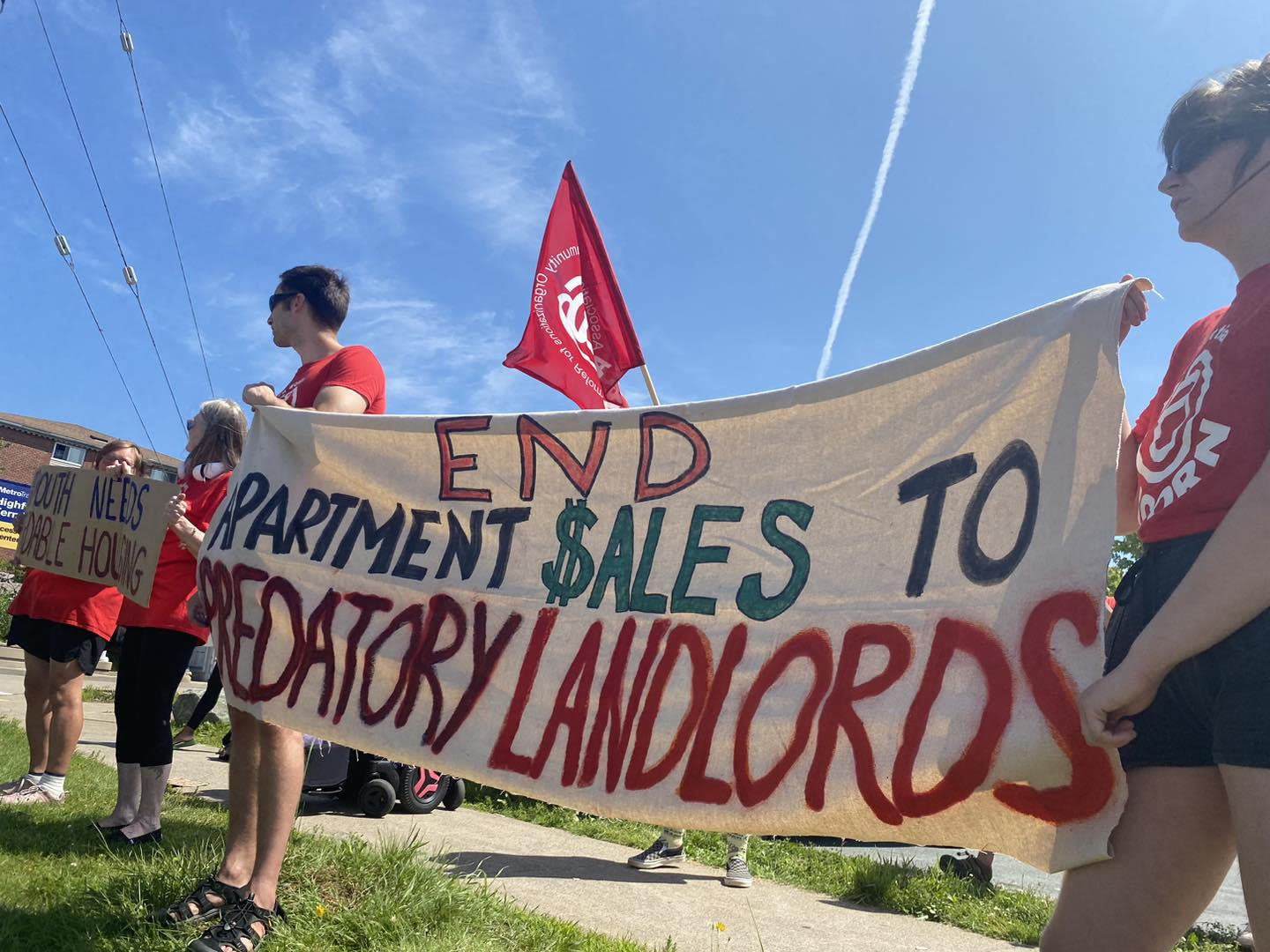
Organizing Works! Manor Village ACORN Tenant Union Wins Fight Against Renoviction!
ACORN Canada took to the streets, organising a national day of action in 9 cities to put an end to sales of apartments to predatory landlords! And Ottawa ACORN are celebrating a massive victory in Manor Village. After 2 years of organising, they were able to force Smart Living Properties to withdraw their eviction notices and allow all tenants to stay in their homes!
-
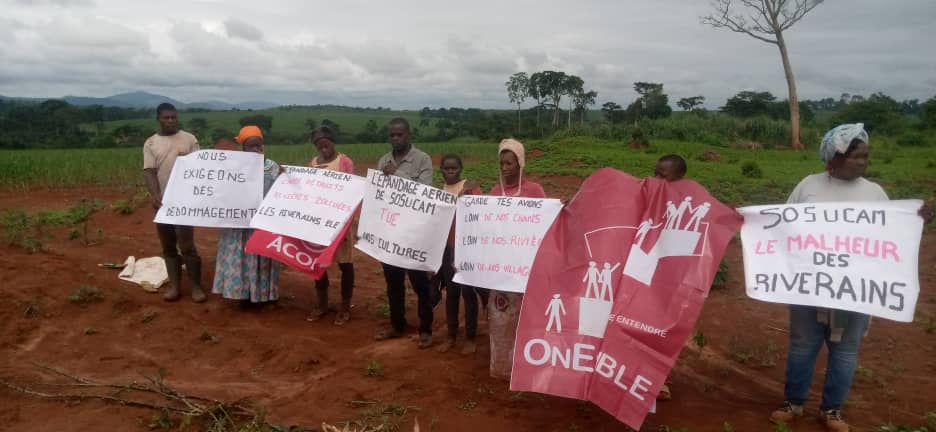
Cameroon: peasant crops destroyed by Sosucam’s aerial expanses, OnEstEnsemble organizes protest
OnEstEnsemble organized a protest with the eco-union of residents near the SOSUCAM sugar cane plantations. These residents’ crops of cassava, peanuts and yams were destroyed by SOSUCAM’s planes spraying pesticides. The residents gathered the destroyed crops and displayed signs in protest, demanding compensation.
Residents of the sugarcane plantations of the Somdiaa group, subsidiary of the French giant Castel, have been forced to uproot their production of cassava, peanuts and yams, destroyed in their fields by spraying pesticides by the company planes. Several have gathered to protest, and planned to pour their destroyed production in front of the Sosucam headquarters.
The victims demand that the company compensate them for the huge loss.
Organized in the eco-syndicate Riverains Ensemble, the peasants were already asking through a petition to stop air expansion, banned in France.
